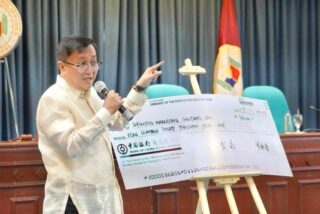British banking giant HSBC sees inflation in the Philippines and other emerging Asian economies peaking by the third quarter and decelerating afterward, setting the stage for a stock market upswing.
The Bangko Sentral ng Pilipinas might also further raise its key interest rates twice for the rest of 2011 by a quarter percentage each from the current 4.5 percent for the overnight borrowing rate, HSBC country chief executive Tony Cripps said in a briefing Wednesday.
Arjuna Mahendran, HSBC managing director and head of investment strategy for Asia, said China was almost at the end of its monetary-tightening cycle and inflation was now likely to taper off. “That will be a very bullish signal for emerging stock markets and bond markets,” he said.
In the case of the Philippines, the peak of inflation was likely to be seen by October, added Benjamin Pedley, HSBC senior director and head of investment strategy for North Asia. “Inflation peaking is likely to be a precursor to equity market gains,” he said.
Pedley explained that the peaking of inflation by October would be partly due to base effects from a year ago and the lagged effect of the monetary policy tightening sanctioned in previous months. HSBC assumed that it would take about six to nine months for monetary decisions to start taking effect.
This means that through the third quarter, there would likely be some “mild” pullback in the Philippine stock market, Pedley said. It is during this “soft” period that investors should reconsider investing more in emerging markets like the Philippines, he said. This will be a platform for stocks to rally by the fourth quarter, Pedley added.
HSBC’s view was that oil prices have peaked and would not likely spike for several months or even years to come. The capture of Osama Bin Laden, Arjuna said, had somehow reduced the risk premium in the Middle East-North African region. “We now have more clarity on how the future will be,” he said.
Arjuna said it was uncertain whether the Philippine Stock Exchange index could outperform this year the 4,400 record high seen late last year. He said this year would be “constructive” but the “ramming” of the stock markets would likely be next year.
“Emerging market stocks will likely pick up steam after September all the way till April and May next year and that’s probably when the US Fed will indicate a hike in interest rates,” Arjuna said.



